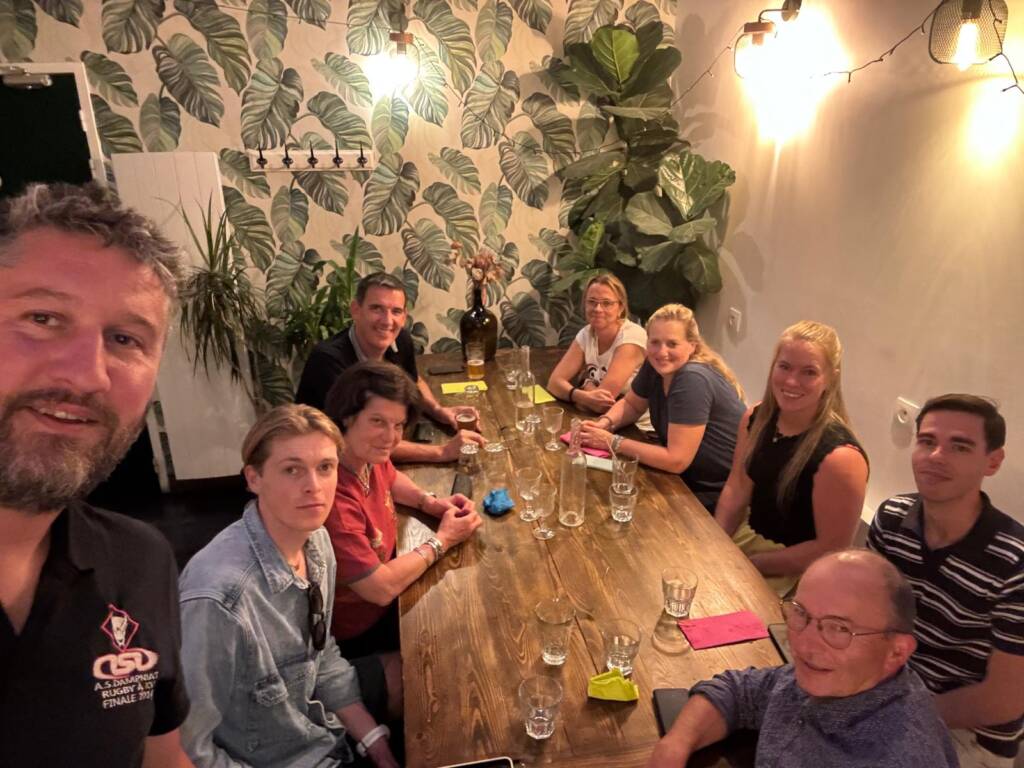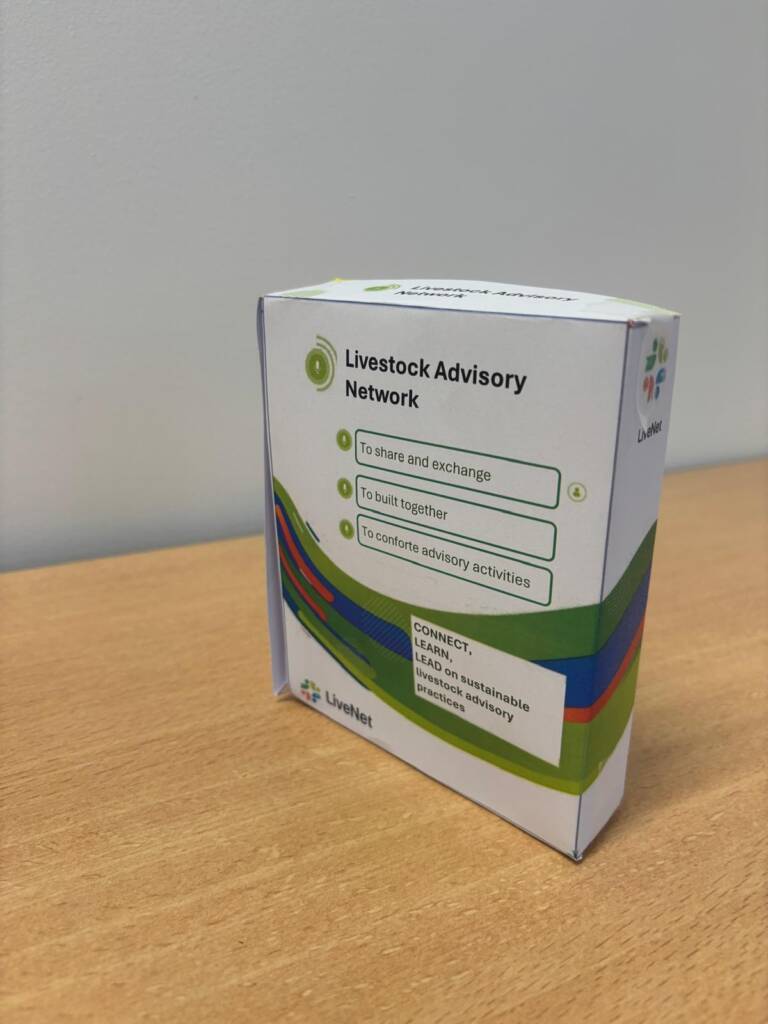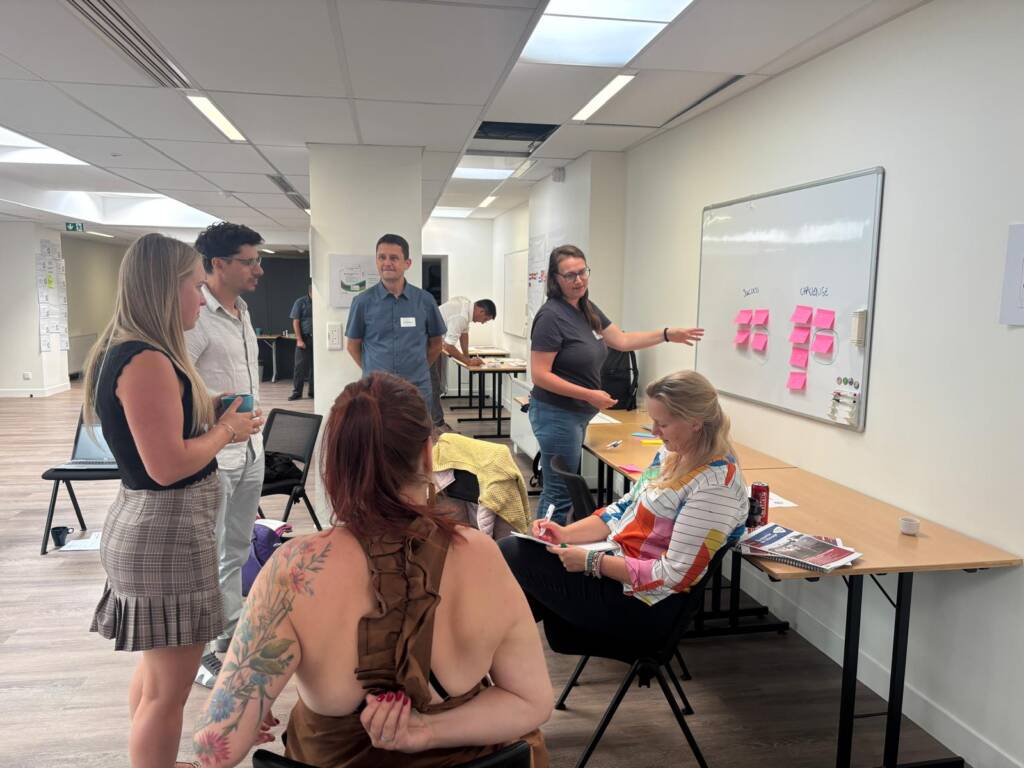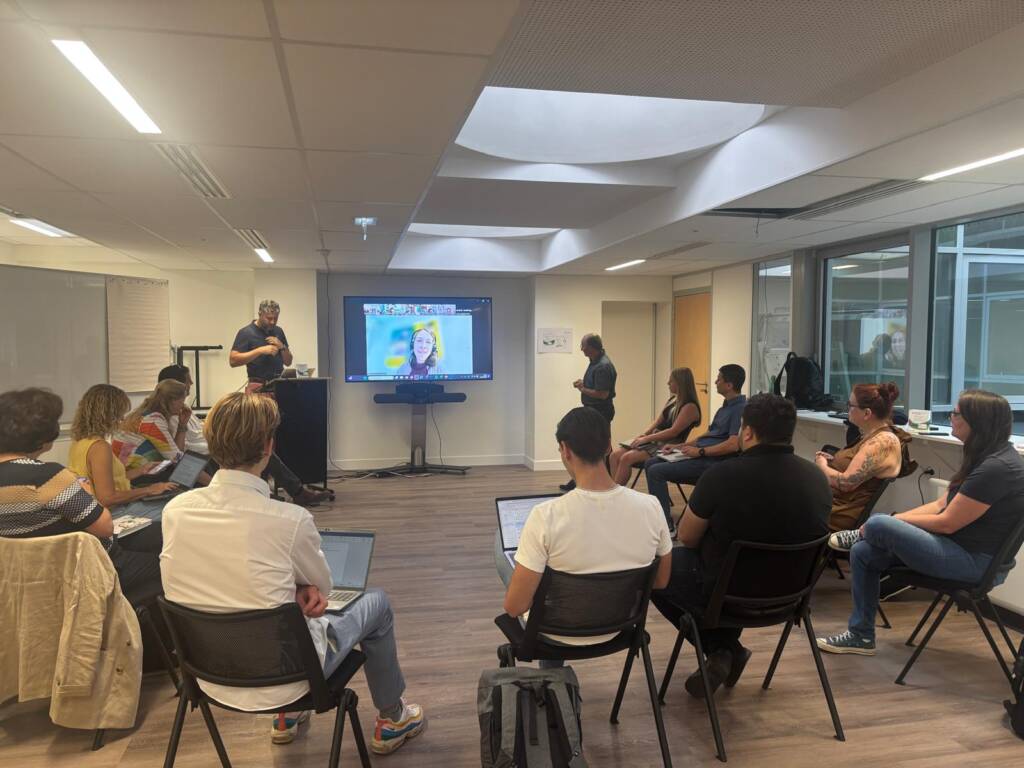The LiveNet project recently held a training session in august, bringing together partners from across Europe to advance the development of a sustainable Livestock Advisory Network. The aim is to improve livestock sustainability by 2026.
The session focused on clarifying project objectives, refining the network’s identity, and strengthening the role of National Network Leaders (NNLs), while also tackling challenges of stakeholder engagement and coordination across diverse regional contexts.
Finalising the LiveNet Identity
A key outcome of the training was the confirmation of the project’s messaging and visual identity. The network will be known as the “Livestock Advisory Network”, under the tagline: “Connect, Learn and Lead on sustainable livestock advisory practices.”
Participants also worked with the Product Box methodology to align on the benefits, features, and value propositions of the network. This exercise underlined the need for a shared understanding of sustainability, ensuring that LiveNet’s vision can be communicated clearly across countries.
National Network Progress and Challenges
The session also reviewed the progress of national networks. While many are still in their early stages, participants shared promising experiences as well as common challenges, including:
- engaging advisors and stakeholders,
- communicating the benefits of network participation, and
- ensuring national activities link effectively to the broader European framework.
Working groups explored potential successes and obstacles, with an emphasis on imagining future achievements and identifying the resources needed to reach them.
Defining and Evaluating Innovative Advisory Practices (IAPs)
LiveNet partners advanced their work on Innovative Advisory Practices (IAPs). The group agreed on key features that distinguish IAPs—such as farmer-centred approaches, up-to-date technologies, and real-world validation—while identifying characteristics that should be avoided, such as outdated or generic methods.
Discussions also focused on simplifying the evaluation framework, reducing the number of assessment criteria to ensure usability and clarity for both advisors and farmers.
Budget, Contracts, and Support for National Networks
The financial framework was presented for network activities, including allocations for national meetings, cross-country exchanges, and facilitation. Partners stressed the need for timely contract finalisation with National Network Leaders, agreeing to circulate a contract template to accelerate the process.
The group also discussed the creation of a light-touch reporting and monitoring system, designed to reduce administrative burden while ensuring transparency. Each NNL will dedicate approximately 12 hours per year to reporting and coordination, supported by a dedicated toolkit and SharePoint resources.
Next Steps
The training session concluded with a clear roadmap:
- National Network Leaders will prepare upcoming activities, select six IAPs by June 2026, and strengthen links with other countries in their cluster.
- All participants will refine their network strategies, prepare for upcoming workshops, and review project deliverables.
- Project leaders will continue supporting partners with thematic choices, technical guidance, and facilitation.
Building Momentum for Sustainable Advisory Systems
This training session marked an important step in LiveNet’s journey. By finalising its identity, clarifying roles, and strengthening collaboration, the project is laying the groundwork for a pan-European livestock advisory network.
As one participant reflected, “This is not only about sharing practices, but about building the structures and trust needed to ensure livestock sustainability for the future.”





